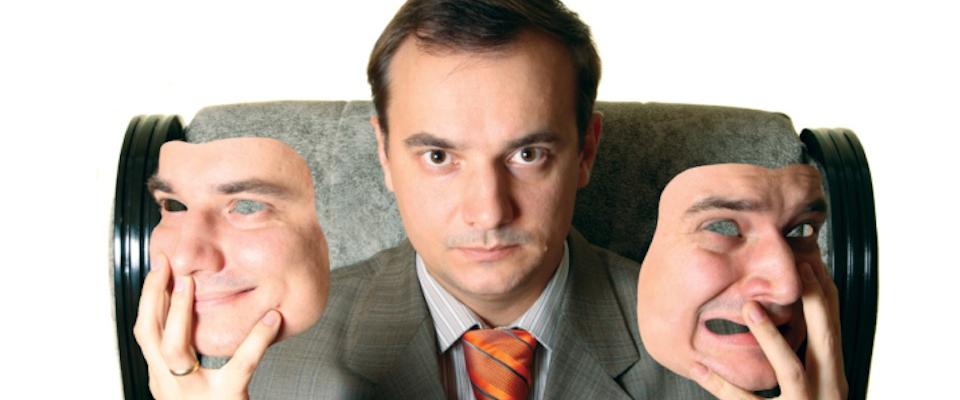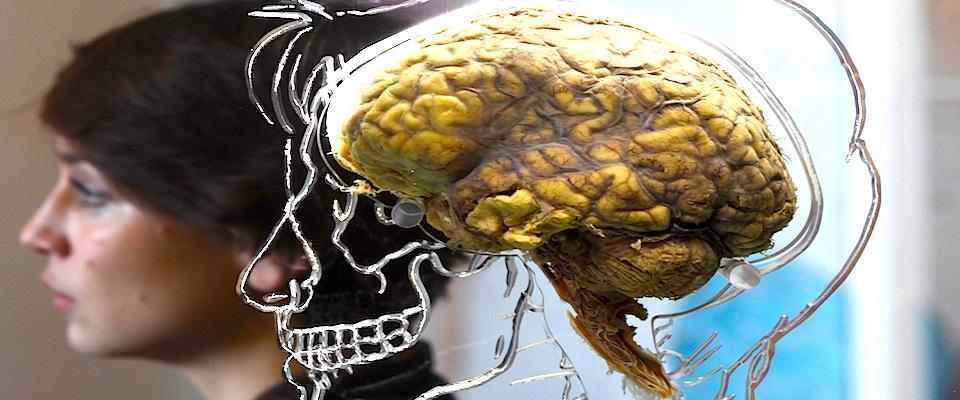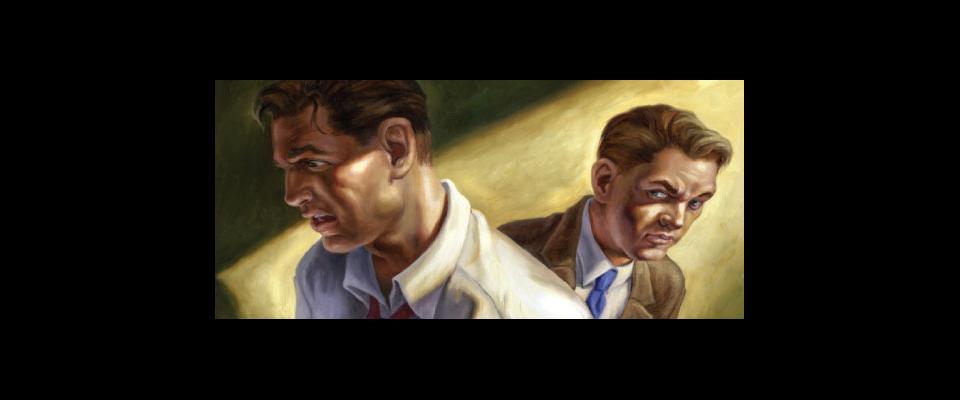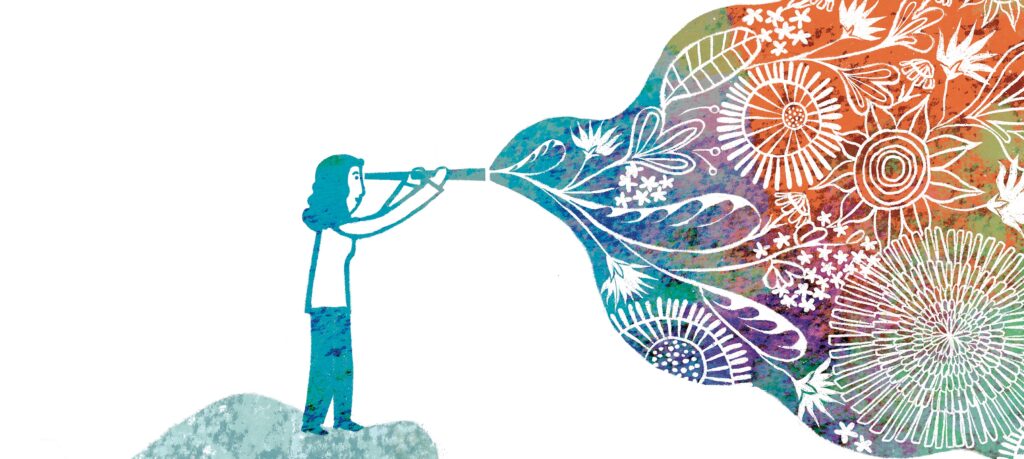For any district attorneys, homicide detectives, and parents of wily teenagers who may be reading this: There’s good news and there’s bad news.
First, the bad news. According to a new UC Berkeley study just published in Psychological Science, you’re not nearly as good of a lie detector as you think you are.
In a series of experiments at the Haas School of Business, post-doctoral fellow Leanne ten Brinke and colleagues Dana Carney and Danya Stimson asked undergraduate volunteers to watch a mock-criminal interrogation videos and then judge whether the accused were telling the truth or not. (These interrogations were lab experiments themselves: Volunteers were randomly asked to either steal $100 from an envelope or not—but either way, to insist upon their innocence when confronted.) The results don’t inspire much confidence in the criminal justice system: Participants were able to sort truth-tellers from thieving liars slightly less than half the time.
In other words, a flipped coin would probably have made a slightly better judge of character.
Now for the good news. According to the same study, you’re also a much better lie-detector than you think you are. It just depends on which part of the brain you’re using.
In the second half of this experiment, the same participants were given a rapid-fire word association quiz in which they were asked to look at photos of the accused from each of the mock interrogation videos and decide whether each picture should or shouldn’t be labeled with various words relating either to truthfulness or deceit. The researchers then measured how quickly different participants took to make those decisions. That’s an unintuitive but time-honored method of plumbing the subconscious mind, says Brinke. “If you see a liar’s face, you probably have all kinds of things activated in your brain,” she says. That blizzard of mental activity might include a scan of their physical features, a quick read of their emotional state, how you know that person and, just possibly, whether the person looks trustworthy or not.
And if the subconscious mind is able to pick up on the face of a liar and punch out a quick distress signal accordingly, that should influence the speed at which a person links that liar’s face to words related to deceit. “When you see a lie word—if that concept of lying is already active in your brain—you’ll respond much faster,” she says. “Whereas if your unconscious mind has ‘truth teller’ activated when you see a ‘lie word,’ you’ll have to overcome that and that will take longer.”
Sure enough, this second test yielded much different results. Calling upon what non-psychologists might call a “gut feeling,” but which the researchers refer to as “less-conscious mental processes,” this second test showed participants to be much keener judges of veracity, predictably linking liars to “lie words” and vice versa. When asked to match faces with words (quickly and unthinkingly, which is about as close to “subconscious” as these tests can get), the accurate matches were too much faster than the inaccurate ones to be purely random.
There had to be something speeding up the right answers or slowing down the wrong ones. That “something,” according to Brinke, is the split second decision to either go with your subconscious mind’s immediate assessment or to override it.
In other words, when it comes to distinguishing fibbers from truth-tellers, it might be best not to overthink it.
“People always say that liars look away, that they look up and to the left, that they’ll avert your gaze, that liars appear nervous,” she explains. “Unfortunately, there is no ‘Pinocchio’s nose’—there’s no one thing that will always reveal a liar. But there’s a constellation of subtle behaviors that can add up. It’s not a perfect science, but there were behavioral differences in the videos and it seemed like the unconscious mind was able to pick that up.”
Only for the conscious mind to put it back down, it would seem.
“There are a lot of incorrect ideas about what liars and truth-tellers ‘look like,’” says Brinke. “We’re overriding our intuitive sense with old wives’ tales that don’t have a basis in reality.”
The study of lying and lie detection isn’t a new field. It’s long been recognized that from courtrooms to boards rooms to bedrooms, the ability to confidently untangle fact from fiction would certainly make life easier for most of us (if, perhaps, less interesting). In fact, there may be an evolutionary advantage for those who can reliably pick out a deceiver (akin to the advantage for those who can reliably deceive). In what Brinke and her colleagues refer to as an “evolutionary-arms-race,” the human brain has likely developed the ability to tell and detect lies in tandem. Though there’s no reason that these abilities need to be exercised knowingly.
“This doesn’t have to be a conscious ability,” says Brinke. “We don’t need to have conscious alarm bells ringing. It could be something more subtle. It could just be a feeling: I don’t want to lend money to that person. I don’t want go on that second date.”
“I decided I didn’t really like working with murderers anymore and so I found another place where lie detection application is really important.”
Still, we manage to find a way to ignore those hunches. In a 2000 article published in Nature, a research team led by Harvard psychiatrist Nancy Etcoff found that while the average person is indeed no better than a coin at detecting liars, hospital patients who had lost the ability to fully understand spoken language as the result of damage to the left orbitofrontal cortex—and instead had to rely on nonverbal behavior for communication—were much better at detecting lies about concealed emotional states.
What this suggests, according to the Psychological Science article, is “when conscious thought is impaired or stripped away, deception-detection accuracy is enhanced.”
That this project took place at Berkeley’s business school may not seem obvious. Early in her academic career, Brinke launched her research into the psychology of lying by looking at jury decision-making, investigative interrogations, and sexual predators.
“But after a while, I decided I didn’t really like working with murderers anymore and so I found another place where lie detection application is really important,” she says. “In negotiations and investment decisions, how do you know whether someone is feeding you a bunch of nonsense? There’s a lot of interest from the business world.”
This latest article is only the first of many experiments designed to meet that interest. Together, Brinke and Carney, an assistant professor at Haas and coauthor of the Psychological Science article, are pairing up to learn as much as possible about lies with the goal of identifying cheap and easy ways to ferret them out. Right now, the two are looking at the effect that the physical environment has on lie detection. So far, it would seem that the interior decorators of police interrogation rooms are onto something. “Liars tend to leak more in sparsely decorated settings,” says Brinke. CEOs who favor their plush boardrooms, take note.
The practical implications of this recent study, however, are less clear. Though Brinke’s research suggests that humans possess some intuitive lie-detecting skills, it doesn’t offer any hints as to how we might all exercise those skills more readily. And short of stacking our juries with aphasics, it provides no real-world solutions to that ubiquitous and evolutionarily embedded problem that some of us are just really good at making stuff up.
“But it certainly suggests there’s a whole other way to make decisions,” says Brinke. And for those of us who make lousy poker players, worse hagglers, and who, on a daily basis, feel like rudderless ships floating exposed upon a sea of human deceit, it’s nice to have official scientific confirmation that sometimes it really is best to just go with your gut.





















